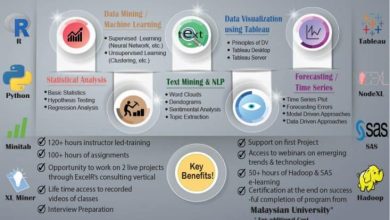Introduction
Innovation begins with ideas, and turning those ideas into tangible products requires a strategic approach. Prototype engineering services play a pivotal role in this process by bridging the gap between concept and execution. This article explores the concept of prototype services, the comprehensive offerings of prototype engineering services, their benefits, process insights, industry applications, and considerations for choosing the right provider.
Understanding Prototype Services
1. Definition and Importance
Prototype services involve the creation of initial models or prototypes that represent a product’s design and functionality. These prototypes serve as essential tools for validating concepts, testing functionality, and refining designs before full-scale production.
2. Advantages of Prototype Engineering Services
Prototype engineering services offer numerous advantages:
- Accelerated Innovation: Rapid prototyping allows for quick iterations and improvements, reducing time-to-market.
- Risk Reduction: Early identification of design flaws or performance issues minimizes costly errors during production.
- Enhanced Communication: Tangible prototypes facilitate clearer communication with stakeholders, aiding in decision-making and alignment.
3. Types of Prototype Engineering Services
- 3D Printing: Utilizes additive manufacturing to create prototypes layer by layer, suitable for complex geometries and quick iterations.
- CNC Machining: Precision machining of prototypes from various materials such as metals and plastics, ensuring high accuracy and durability.
- Rapid Tooling: Enables fast production of tooling molds for injection molding, facilitating low-volume prototype manufacturing.
Benefits of Prototype Engineering Services
1. Cost Efficiency
Early prototyping helps identify and rectify design flaws, reducing overall development costs by preventing expensive modifications later in the process.
2. Design Validation
Prototypes allow for thorough testing of product functionality, ergonomics, and usability, ensuring that final designs meet performance requirements and user expectations.
3. Iterative Improvement
Iterative prototyping enables continuous refinement based on user feedback and testing results, leading to enhanced product quality and market readiness.
4. Market Advantage
Faster time-to-market and superior product quality derived from prototype engineering services can provide a competitive edge in dynamic market landscapes.
Process Insights of Prototype Engineering
1. Conceptualization and Design
Collaborative ideation and initial design development, often using CAD software, to create a blueprint for prototype production.
2. Prototype Development
Selection of appropriate prototyping methods (e.g., 3D printing, CNC machining) based on project requirements for material properties, complexity, and timeline.
3. Testing and Validation
Comprehensive testing of prototypes to assess performance metrics, durability, and functionality, ensuring alignment with project goals and user needs.
4. Iterative Refinement
Feedback-driven iteration of prototypes to address identified issues or enhancements, optimizing designs for scalability and production readiness.
Industry Applications of Prototype Engineering
1. Consumer Electronics
Prototyping mobile devices, wearables, and IoT gadgets to validate designs and functionalities before mass production, ensuring product reliability and market acceptance.
2. Automotive and Aerospace
Developing prototypes for vehicle components, aircraft parts, and aerospace systems to verify performance, safety, and regulatory compliance prior to manufacturing.
3. Medical Devices
Prototyping medical equipment and devices to meet stringent regulatory standards, ensuring functionality, safety, and usability in clinical environments.
Choosing the Right Prototype Engineering Service Provider
1. Expertise and Experience
Evaluate providers with proven expertise in prototype engineering and experience across relevant industries, ensuring they can meet specific project requirements.
2. Technological Capabilities
Assess the provider’s range of prototyping technologies and materials to ensure compatibility with project specifications and desired outcomes.
3. Project Management
Effective project management skills, including communication, timeline management, and scalability options, are crucial for successful collaboration and project delivery.
4. Cost Considerations
Discuss pricing structures, including initial prototype costs and potential scalability for future production volumes, to align with budget constraints and project milestones.
FAQs About Prototype Engineering Services
- What are prototype services used for? Prototype services create initial models or prototypes to validate product designs, test functionalities, and refine concepts before full-scale production.
- How can prototype engineering services benefit startups? Startups can benefit from prototype engineering by validating product ideas, attracting investors with tangible prototypes, and refining designs early in the development process.
- What types of industries commonly use prototype engineering services? Industries such as consumer electronics, automotive, aerospace, and medical devices rely on prototype engineering to develop and test new products, ensuring they meet performance, safety, and regulatory standards.
- What is the difference between prototyping and production manufacturing? Prototyping focuses on creating initial models for testing and validation, while production manufacturing involves mass-producing final products for market distribution.
- How do I choose the right prototype engineering service provider? Consider factors such as expertise, technological capabilities, project management skills, and cost structures to select a provider that aligns with your project goals and requirements.
Conclusion
Prototype engineering services are indispensable for transforming innovative ideas into viable products, offering numerous benefits from accelerated innovation to cost-effective design validation. By leveraging advanced prototyping technologies and expertise, businesses can mitigate risks, enhance product quality, and gain a competitive edge in their respective industries. Whether developing consumer electronics, automotive components, or medical devices, investing in prototype services lays the groundwork for successful product development and market launch.





